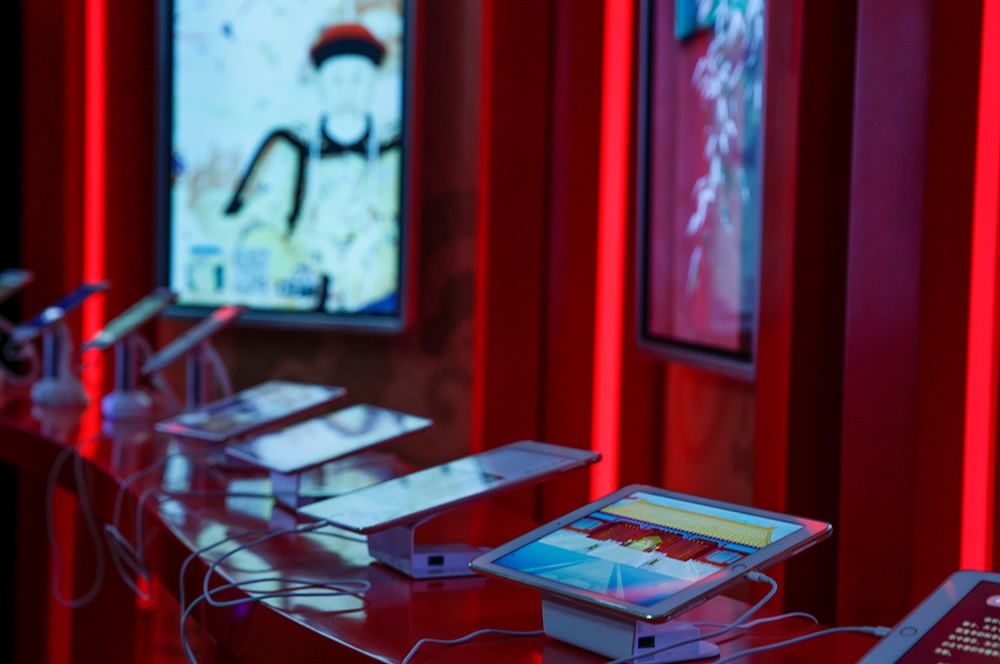The Internet didn't kill museums. Instead, it is now the most powerful weapon for museum managers to attract young visitors.
That is true even for the Forbidden City, whose official name is the Palace Museum, in Beijing. The used-to-be royal family residence has in recent years become a star among Chinese Internet users, as its managers seek to satisfy a younger audience.
Some people would have never thought that an old-fashioned museum can become
a giant meme machine.
And maybe not just the youngsters, since Chinese President Xi Jinping and his US counterpart Donald Trump
visited the museum together earlier this month.
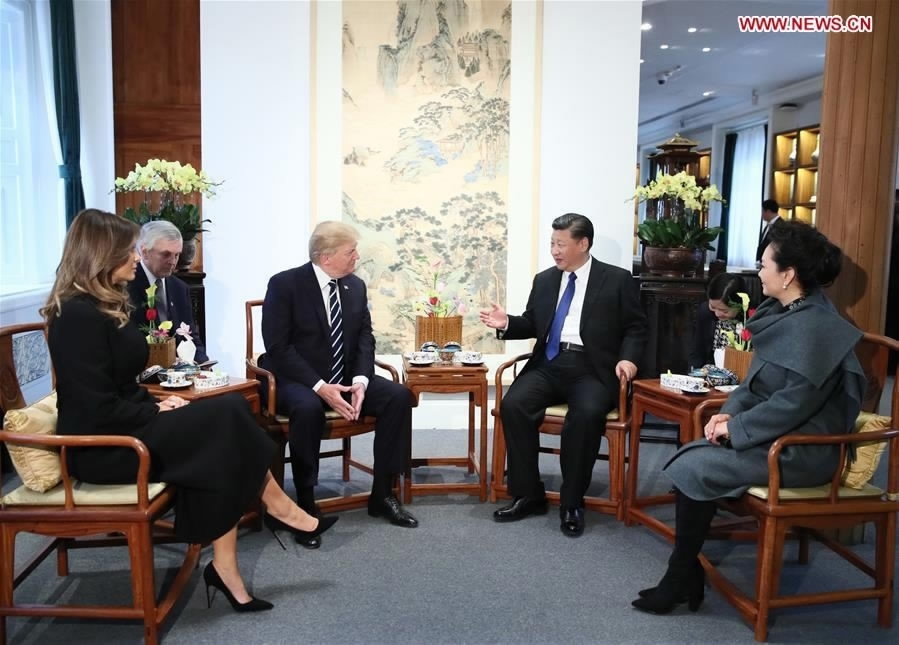
Chinese President Xi Jinping (3rd R) and his wife Peng Liyuan (1st R), and US President Donald Trump (3rd L) and his wife Melania Trump (1st L) chat during an informal afternoon tea in the Baoyun Building of the Palace Museum in Beijing on Nov. 8. / Xinhua Photo
Chinese President Xi Jinping (3rd R) and his wife Peng Liyuan (1st R), and US President Donald Trump (3rd L) and his wife Melania Trump (1st L) chat during an informal afternoon tea in the Baoyun Building of the Palace Museum in Beijing on Nov. 8. / Xinhua Photo
The middle-aged have also been moved by a documentary series showing
how craftsmen repair relics in the thousand-year-old treasure house.
Sorry, no paper tickets
The museum is very focused on digitization as it closed the physical ticket office last month and
started selling all tickets online.
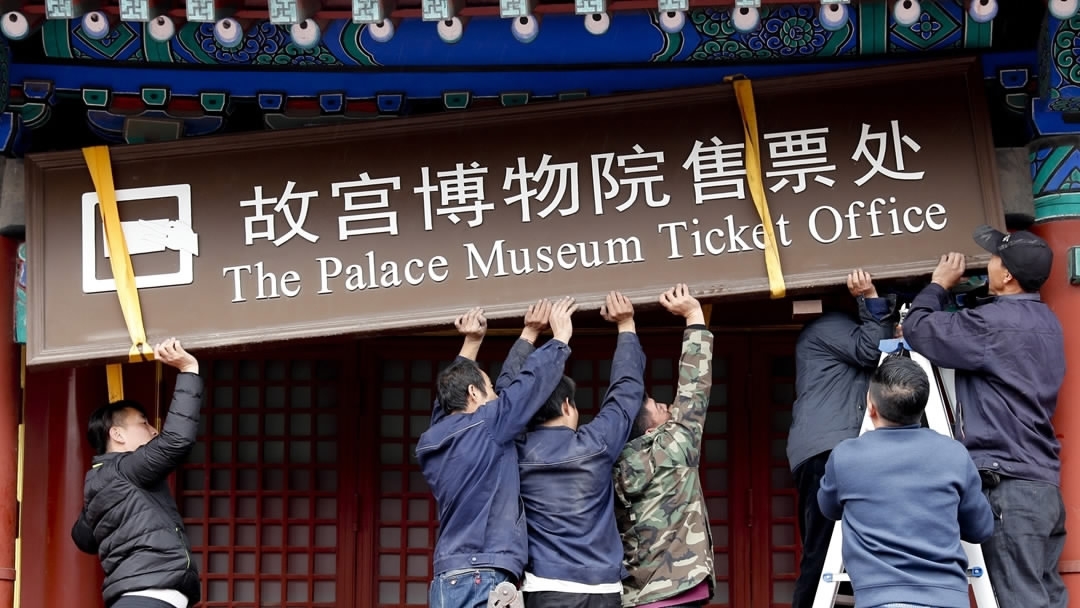
Builders removing the banner of the now closed Palace Museum Ticket Office. /China News Service Photo
Builders removing the banner of the now closed Palace Museum Ticket Office. /China News Service Photo
"There were less than 10 percent of people buying digital tickets in 2012," Shan Jixiang, the chief curator of the Palace Museum told his audience at a symposium about digital museums on Tuesday in the Forbidden City.
"But the number kept increasing. In July 2017 it's already 70 percent. We thought it's time to get completely digital."
Shan described how nervous he was on the first day without paper tickets.
"Although the door of the ticket office was shut, the sellers were still on-position in case anything went wrong," he said. "Fortunately they just sat there waiting for the whole day."
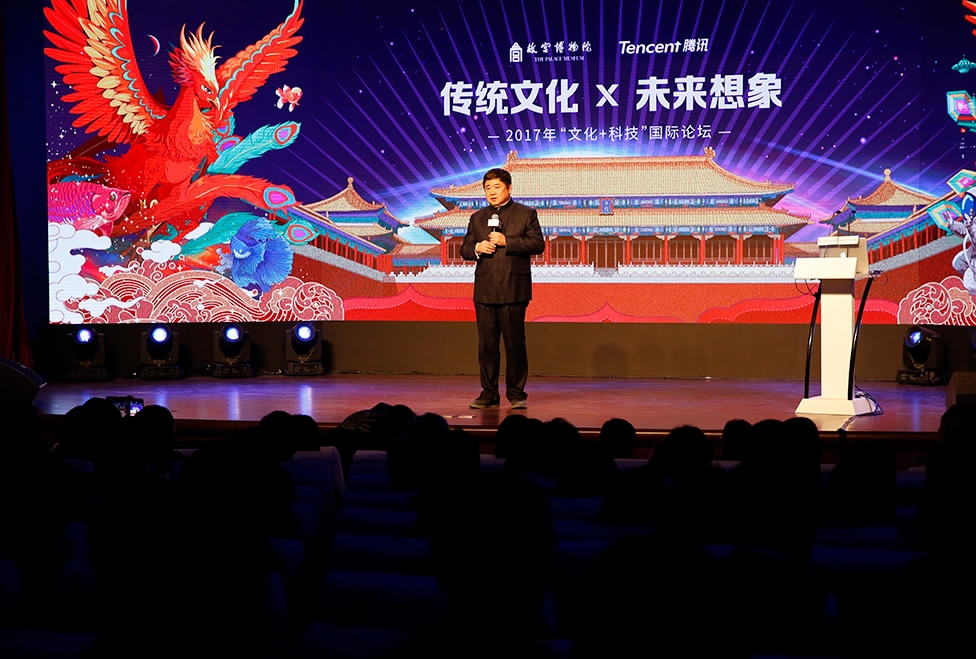
Shan Jixiang talks at a symposium about museum digitization in the Forbidden City in Beijing on November 28, 2017. /CGTN Photo
Shan Jixiang talks at a symposium about museum digitization in the Forbidden City in Beijing on November 28, 2017. /CGTN Photo
City of sensors
For more than 500 years, the Forbidden City was the seat of China's supreme power. Hence the palace is recognized by the United Nation Educational, Scientific and Cultural Organization (UNESCO) as a world heritage site.
It is also a museum that can attract a maximum of 160,000 visitors a day. But how can the managers protect the attraction from natural and non-natural damage in the face of this huge human traffic?
The answer is in technology, according to Shan.
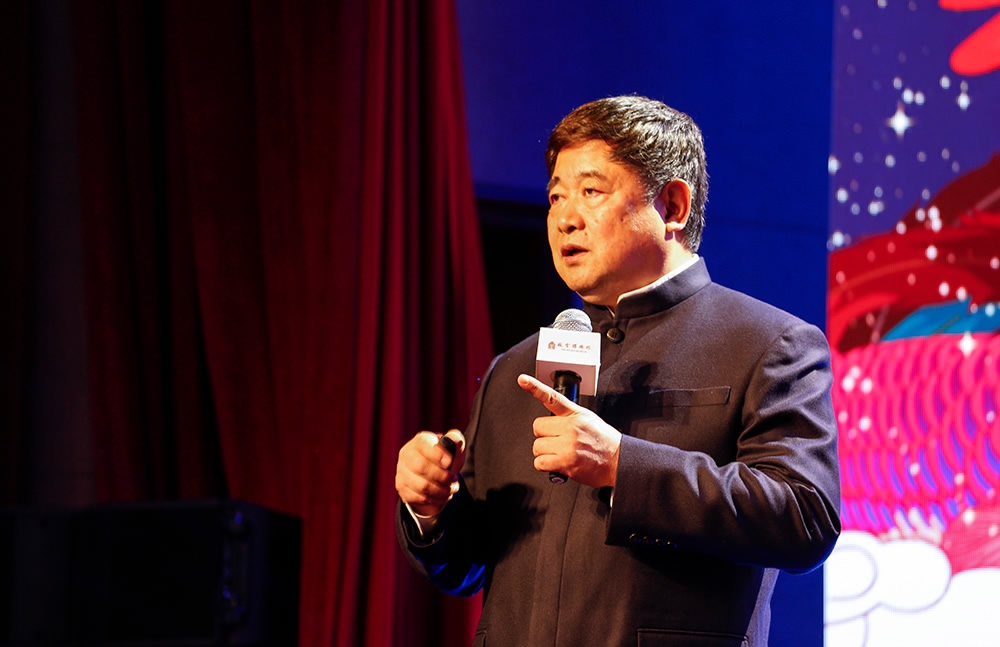
Shan talks about museum technology in the Forbidden city. /CGTN Photo
Shan talks about museum technology in the Forbidden city. /CGTN Photo
"We resorted to hi-tech quite early in the museum world," he said. "Sensors are hidden everywhere to monitor the health of buildings and relics."
He demonstrated the central control system in the museum's office. The system can not only display real-time status of the heritage, but also automatically generate yearly report papers.
With the massive data collected, the managers concluded that the optimum number of visitors should actually be 80,000.
As a result, the online ticket house will shut itself down when the limit is reached.
Remote sensing can also help with the restoration work. Modern technology allows engineers to do a full scan of an object without a single touch, and provide massive data for craftsmen to find the best way to restore a relic to its past glory.
"Technology has given our museum a new life," Shan concluded.
The powers behind
But the Palace Museum is not an active tech developer so how has it come to use all kinds of new technology?
"They have been cooperating with more than 30 companies to do that," a visitor in the museum told CGTN. "The cooperation is quite a success. My company is also seeking to be a part of it."
Among the companies pushing the Forbidden City's digitization, is Tencent, China's largest Internet company.
"Cooperating with museums is just one part of our company's cultural strategy," said Ren Yuxin, Tencent's Chief Operating Officer.
"Starting this year, we're calling Tencent a tech and culture company based on the Internet."
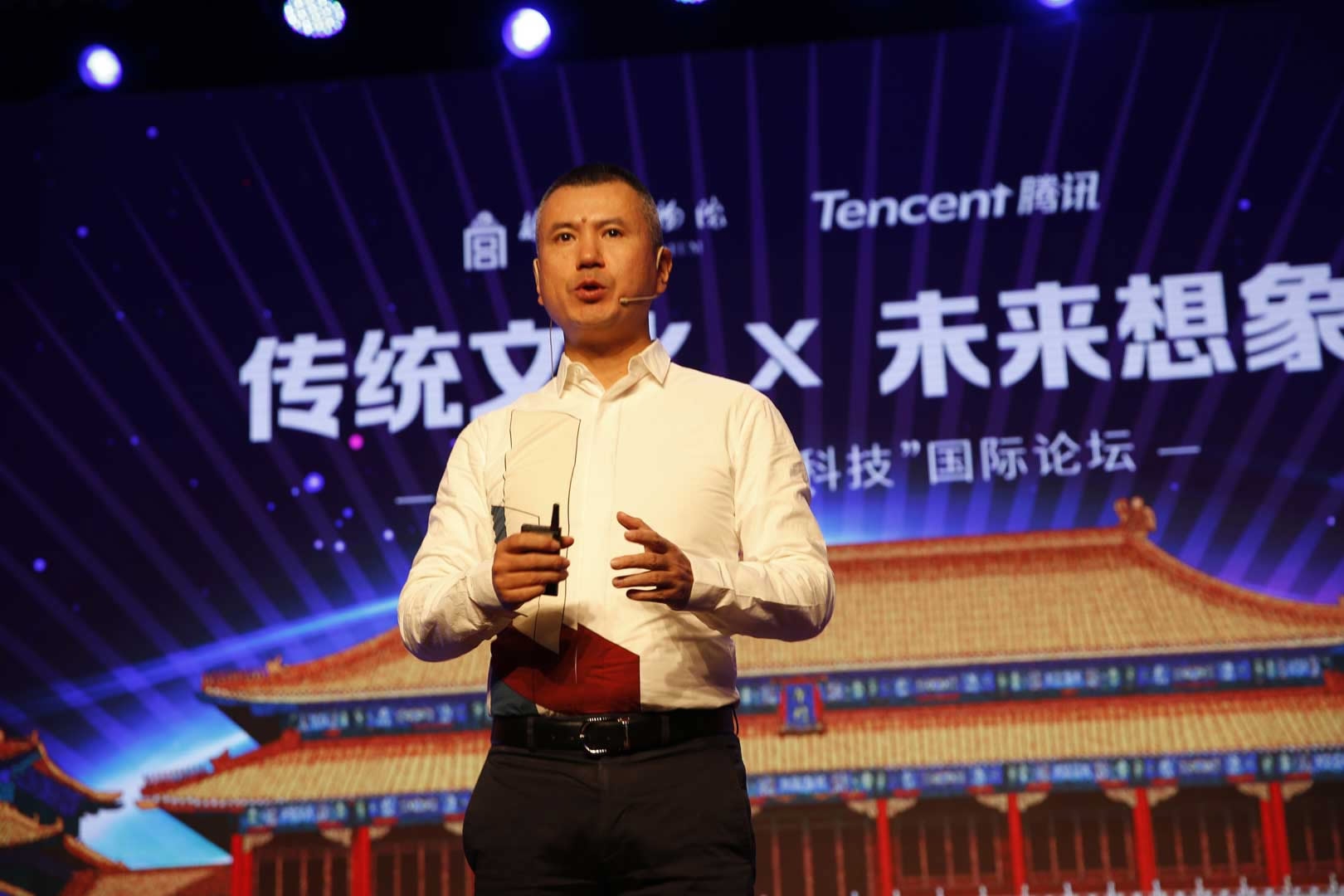
Tencent COO Ren Yuxin talks about the company's culture strategy in the Forbidden City. /CGTN Photo
Tencent COO Ren Yuxin talks about the company's culture strategy in the Forbidden City. /CGTN Photo
It comes less than a month after Yuewen Group, Tencent's digital book publisher, filed IPO in Hong Kong.
The gaming section of Tencent is also forging stronger links with traditional Chinese culture.
The firm is adding a splash of Kunqu Opera to its recent mobile gaming hit, Honor of Kings, by introducing a new skin to a character.
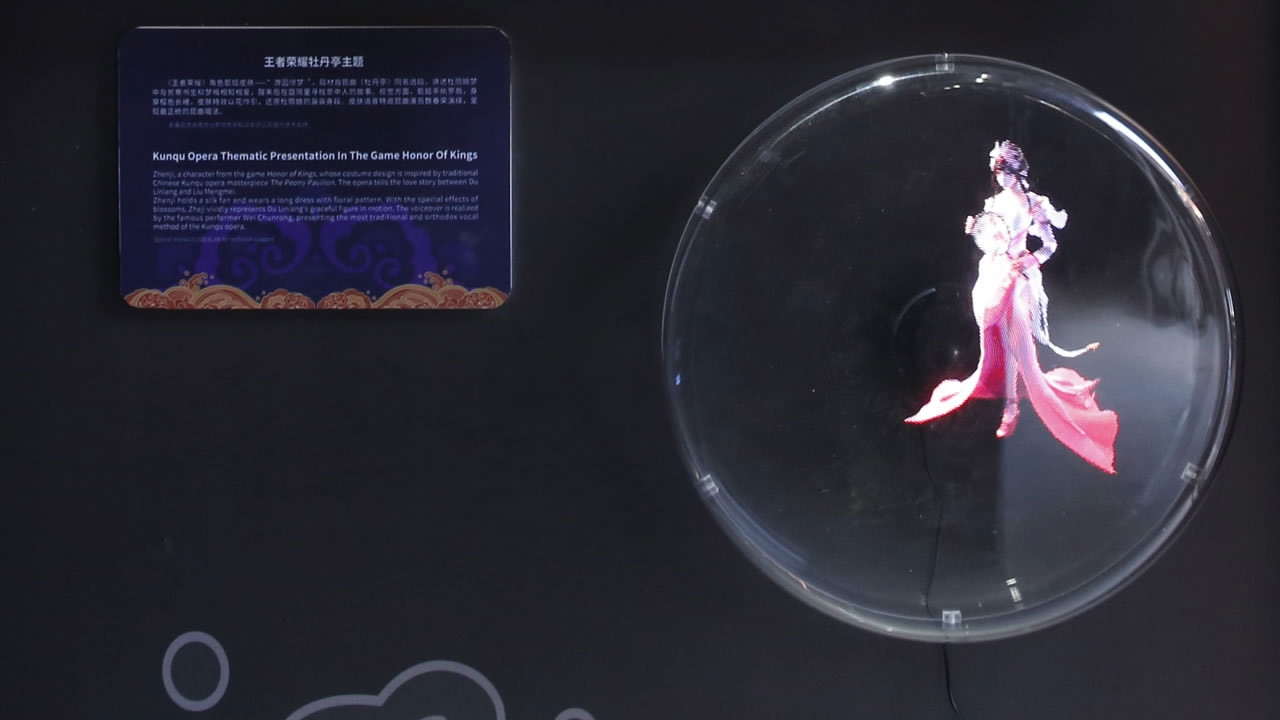
Tencent demonstrated the new skin with a "holographic fan" of LED lights. /CGTN Photo
Tencent demonstrated the new skin with a "holographic fan" of LED lights. /CGTN Photo
The voice actor of this skin is an actual Kunqu performer and developers hope this can bring more a vivid personality to the character.
"More and more traditional skins will be added to the game," a developer told CGTN.

